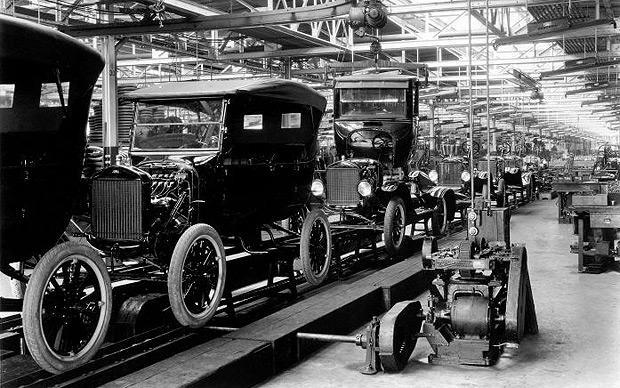 |
| One way to keep wages down: These guys are not in the Carpenters' Union. |
Joe Stiglitz has a really cogent op-ed in the NYTimes today, and nails down exactly what has happened to the U.S. over the last forty years, economically and politically speaking. Here are the money graphs:
The problem of inequality is not so much a matter of technical economics. It’s really a problem of practical politics. Ensuring that those at the top pay their fair share of taxes — ending the special privileges of speculators, corporations and the rich — is both pragmatic and fair. We are not embracing a politics of envy if we reverse a politics of greed. Inequality is not just about the top marginal tax rate but also about our children’s access to food and the right to justice for all. If we spent more on education, health and infrastructure, we would strengthen our economy, now and in the future. Just because you’ve heard it before doesn’t mean we shouldn’t try it again.
I have a hard time understanding why an educated, insightful, even vaguely compassionate human being would be able to read Stiglitz' piece without not only agreeing with it but regarding it as a true and urgent call to arms. We know how to construct more equitable societies and what the benefits of such societies are. We lived through our middle-class boom decades. Those years had what these years do not: a united community that understood that a public-private partnership worked, with each sector having a role that it did best. Government provides the structure for jobs -- like building the national highway system or flying into action when a great catastrophe, like a hurricane or a deep recession, hits -- that only it can do, and the private sector does the bulk of the nation's business, with government regulating markets just to the extent that corruption and greed can't smother the efficacy of otherwise free markets. To reverse-engineer Gorden Gecko, greed is not good. Drive is good. Innovation is good. Figuring out how to use the Cayman Islands to avoid paying your fair share in taxes is not.We have located the underlying source of the problem: political inequities and policies that have commodified and corrupted our democracy. It is only engaged citizens who can fight to restore a fairer America, and they can do so only if they understand the depths and dimensions of the challenge. It is not too late to restore our position in the world and recapture our sense of who we are as a nation. Widening and deepening inequality is not driven by immutable economic laws, but by laws we have written ourselves.
How does this fit into the conversation I've been having -- mostly with myself -- about the number of college grads determining the success or failure of a given U.S. state? Mississippi has low educational achievement, high poverty, sketchy health care coverage, and huge Republican dominance in its politics. The notion that it would favor refusing the Medicaid portion of the ACA, being not only against raising the minimum wage but being against a minimum wage at all, fighting the union movement, and keeping welfare payments low while cutting the education budget to starvation levels flies in the face of all a down-and-out state should be doing to cure its ills. Remember, too, that this is how it's been for decades. Essentially, Mississippi's population keeps voting against its own self-interests. That makes it dumber than fuck in my book.
Here's the nub of it: What you're doing now isn't working, Mississippi! Do something else!
And that goes for the rest of the U.S. No state is perfect, and heaven knows DC isn't either. But like Joe Stiglitz says, we know how to do it because we've done it before, and it's worked. It's time to do it again. Unless, of course, you're dumber than fuck or live in a Faux News/Rush Limbaugh bubble. Then God help us all.
 |
| A recipe for increasing poverty. |
 |
| How does Washington state keep its residents out of poverty? Pay them more. |
 |
| We aren't adding enough jobs, even underpaying ones. |
 |
| Is this an accident? If it isn't, shame on us. |
 |
| Henry Ford paid his workers enough to afford his cars. Walmart pays its workers enough to afford its low prices, with government asisstance, of course. |

No comments:
Post a Comment